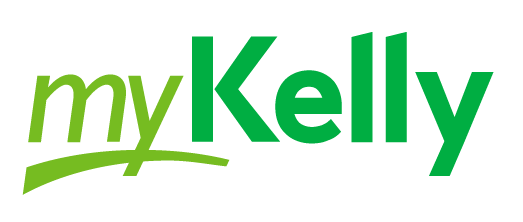Lessons for Strengthening Schools: Improving Education Workforce Resilience
The talent shortage remains a pressing issue across all sectors, affecting industry and education alike. Despite employers’ best attempts to resolve this problem, talent gaps stubbornly persist, raising an important question—why?
The answer— there is a disconnect between employers and talent.The 2023 Kelly Global Re:work Report found that most employers are struggling to build a resilient workforce, as they are failing to meet the needs of workers. Nearly a third (28%) of talent surveyed said they are prepared to leave their employer in the next 12 months. Workers said they plan to quit their jobs due to poor work-life balance and lack of development opportunities, while executives believe they are leaving for better compensation.
Recent surveys of educators and administrators show similar projections of attrition. These surveys suggest that dissatisfaction with compensation and benefits might be driving educators to leave their jobs, but a recent McKinsey report shows they also cite unreasonable expectations and an inability to protect their well-being as top concerns. In fact, nearly 75% of educators identified “expectations” as the primary reason for leaving.
The similarities in these two surveys are striking and the question becomes: what lessons can district and school leaders learn from counterparts in other sectors who have faced similar retention challenges?
Lesson #1: The failure to meet workers' needs and support their wellbeing is reflected in high levels of talent disengagement.
The Re:work Report revealed that workers are facing a disconnection from their workplace.
A staggering 36% feel like they do not belong in their organizations, which can be attributed to the neglect of their mental and non-work-related needs.
Educators are known for their unwavering passion and dedication to their profession. However, in today’s environment, many of them struggle to find a stronger sense of belonging in their school community. Oftentimes, this is because they feel their voices are not heard and resources that support their well-being are not given priority, with the focus remaining solely on student social-emotional well-being.
Resilient employers are much more likely to be focused on fostering an inclusive culture where all staff feel valued and respected. School leaders should create opportunities for staff to participate in decision-making and apply the “whole child” approach to supporting the whole educator through initiatives that support well-being and work-life balance.
Lesson #2: Sourcing contingent talent enhances workforce agility.
The Re:work Report found that the most resilient and profitable businesses are more likely to hire contingent workers. Their niche skills and expertise can provide a temporary or project-based solution, offering companies the flexibility they need to adapt to changing demands. And with the support of an external provider of contingent talent, businesses can free up valuable time and resources while benefiting from the provider’s expertise in managing workers, reducing administrative burdens, and navigating the ever-changing world of contingent work with ease.
The benefits of partnering with a trusted staffing company are comparable in education. From substitute teachers to non-instructional staff such as paraeducators, tutors and therapists, now more than ever, schools need access to a robust network of contingent talent. The right partner can help school districts maximize their resources to promote the continuity of learning and educate the whole child, alleviating the burden of recruiting and managing specialized workers. This allows districts to focus on what matters most - our children's education.
Lesson #3: A culture of continuous learning should be the goal, especially in education.
Fifty percent of the leaders surveyed by Kelly recognized that the skills needed by their organization are set to change dramatically. Forty-eight percent said that addressing skills gaps is a priority. In contrast, 25% of talent surveyed said they have never participated in training provided by their current employer.
One-time professional development is largely ineffective; however, according to an EdWeek Research Center survey, “34% of educators said the professional development they’ve received has mostly been one-time events with some follow-up training, and 23% said one-time events with no follow-up training.”
Resilient employers are more likely to be committed to development opportunities and have established programs to upskill employees across multiple skill levels. Continuous learning opportunities include establishing an online training repository, allocating time for staff collaboration, and developing a mentor program for new educators.
School districts across the U.S. are struggling to attract and retain educators, creating barriers to success for students. The shortage of qualified teachers is a complex issue that demands an agile response from districts. While educators' expectations of their employment experience evolve, districts must prioritize protecting the institution of education, giving teachers the respect they deserve and building a more resilient workforce. We all share the responsibility of shaping the future, and that starts with empowering our educators and providing them with the support they need.
As president of Kelly Education, Nicola Soares is responsible for setting the division’s strategic direction, driving growth, and managing operations. She led the division’s expansion into the early childhood, special needs, pediatric therapy and higher education markets, making Kelly Education the largest and most trusted education workforce solutions provider in the U.S.
View Related:
K-12 School Districts
You need the best and brightest.
We can help solve your most complex talent challenges – both today and in the future – by delivering high–quality talent that moves education forward.
Contact us at 800.Kelly.01 and one of our agents will administer your request. Or, if you'd prefer, fill out the form to submit an email.




